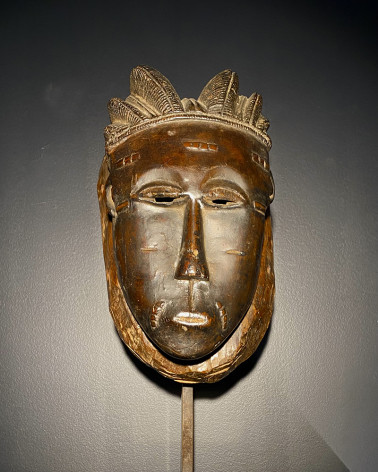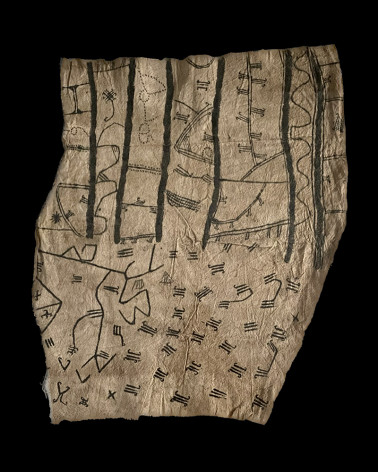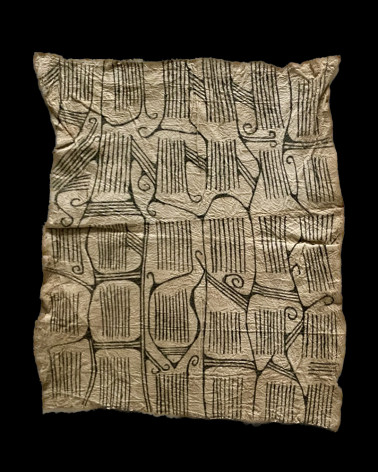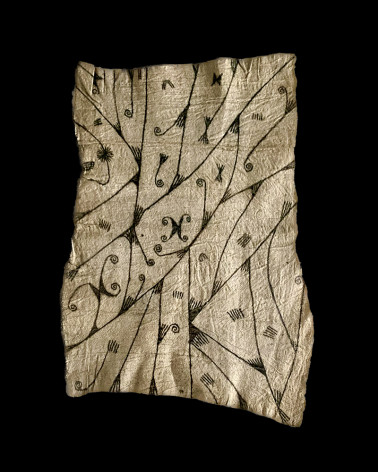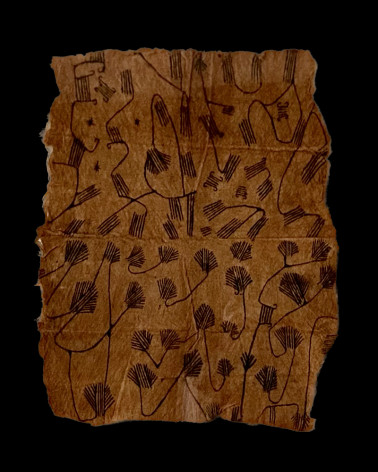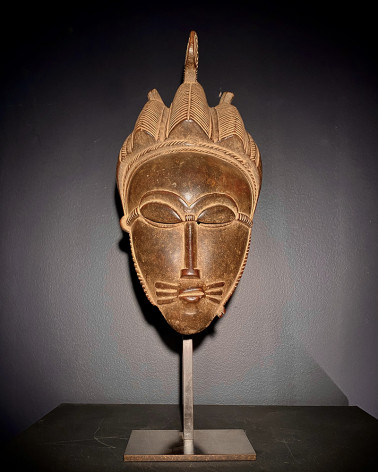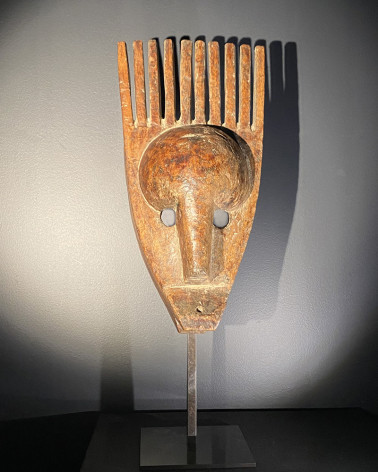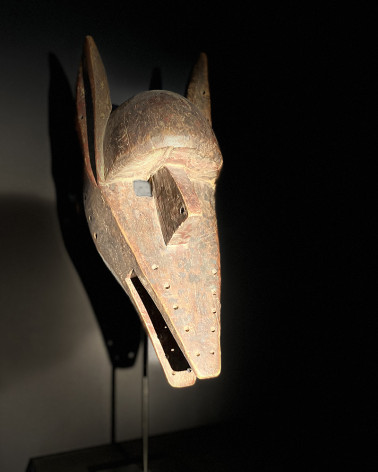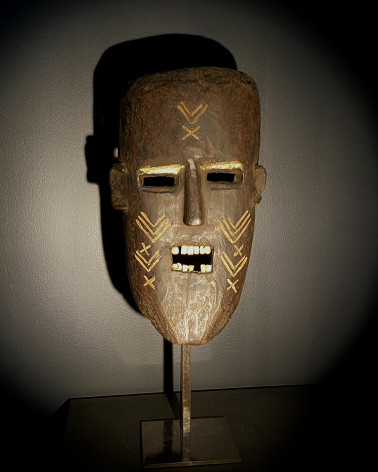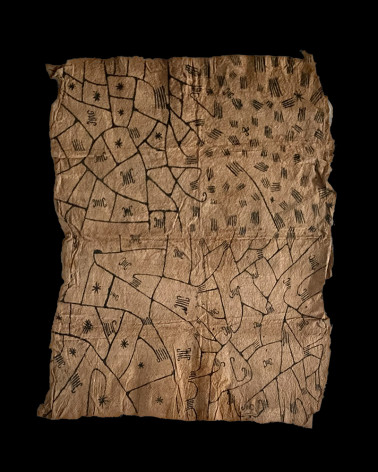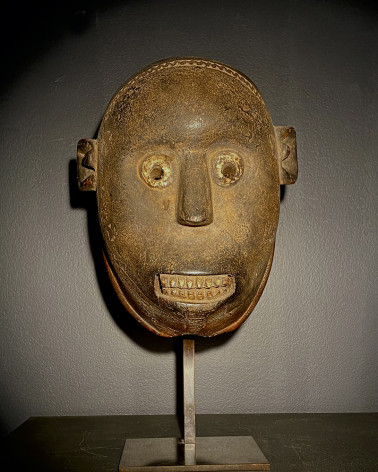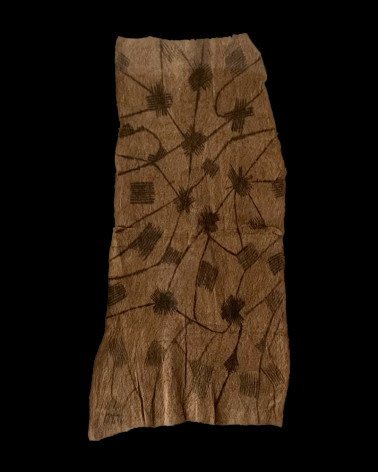African masks and pygmy loincloths
The Mbuti are pygmies from Ituri, in the north east of Congo. These hunters - gatherers live in symbiosis with the equatorial forest, attuned with its syncopated spirits and rhythms. An important part of their time is devoted to leisure, artistic and philosophical issues, through discussions and the learning of complex traditions.
Among these traditions, the bark loincloths presented in this exhibition, used during ritual ceremonies are made from the liber - the internal part of the bark of the trees, the latex ficus. Men recover and beat these barks to soften the fibers and flatten them. To paint a loincloth, the Mbuti women put the folded fabric in two or four on their thighs. Sitting on the ground, they draw motifs in a freehand sequence on each surface delimited by the folds, without feeling obliged to make the motifs of the adjacent parts coincide. They proceed by juxtapositions, ruptures, changes, according to the Mbuti principle of syncopated composition. The drawings are evocations of life in the forest: seeds, plants, trees, reptiles, mammals, birds, insects... They also evoke the material universe of the forest from which are made the instruments of fishing, hunting (nets, ropes, lianas...), another source of inspiration being the celestial vault. The decorated loincloth is a kind of spiritual camouflage. Associated with the practice of singing, it allows to be in communion with the natural environment of the forest.
For this exhibition, we have combined the bark loincloths withmasks selected from various collections, most of which also have a spiritual connection to the forest.

